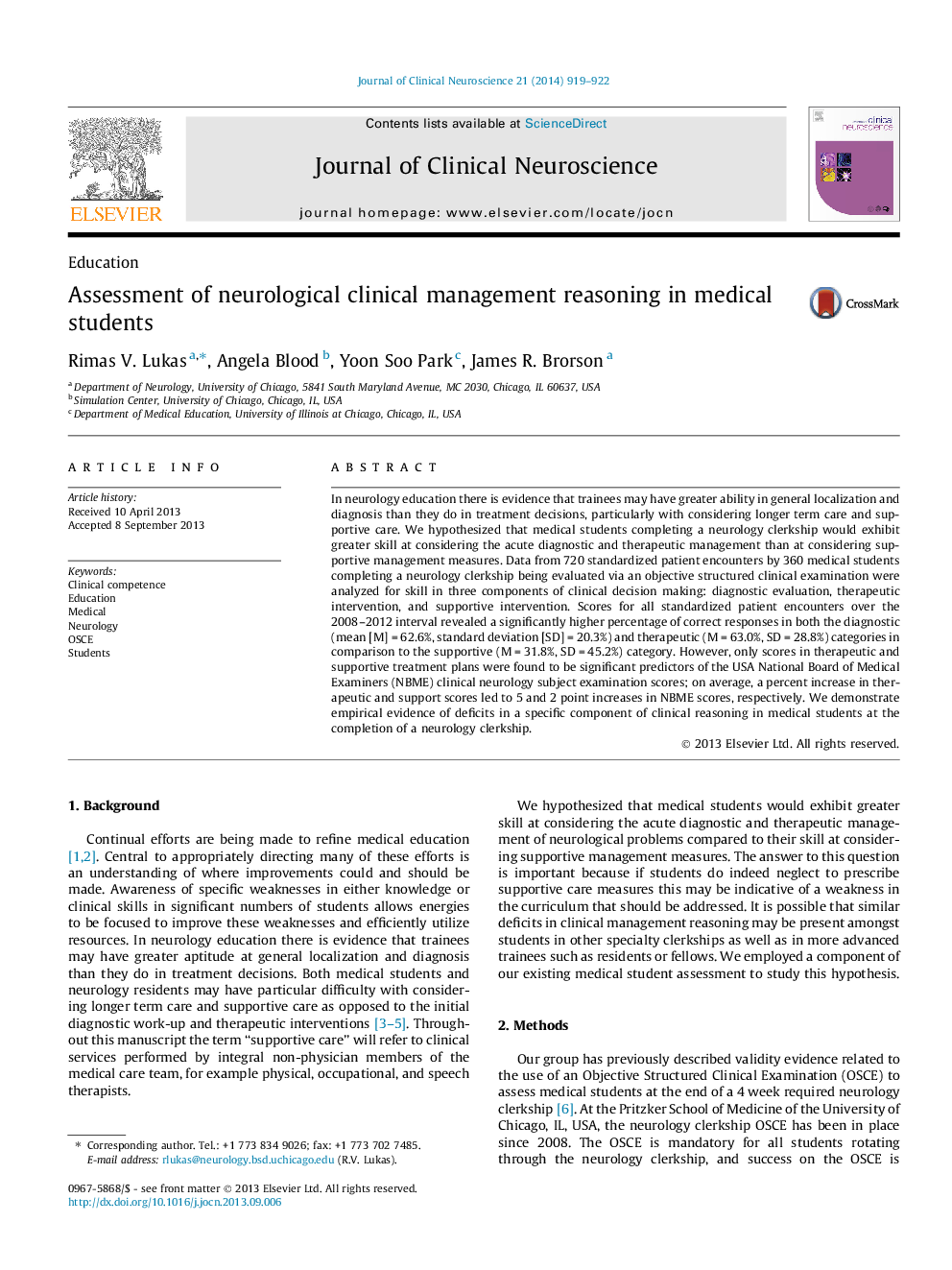| Article ID | Journal | Published Year | Pages | File Type |
|---|---|---|---|---|
| 3059484 | Journal of Clinical Neuroscience | 2014 | 4 Pages |
In neurology education there is evidence that trainees may have greater ability in general localization and diagnosis than they do in treatment decisions, particularly with considering longer term care and supportive care. We hypothesized that medical students completing a neurology clerkship would exhibit greater skill at considering the acute diagnostic and therapeutic management than at considering supportive management measures. Data from 720 standardized patient encounters by 360 medical students completing a neurology clerkship being evaluated via an objective structured clinical examination were analyzed for skill in three components of clinical decision making: diagnostic evaluation, therapeutic intervention, and supportive intervention. Scores for all standardized patient encounters over the 2008–2012 interval revealed a significantly higher percentage of correct responses in both the diagnostic (mean [M] = 62.6%, standard deviation [SD] = 20.3%) and therapeutic (M = 63.0%, SD = 28.8%) categories in comparison to the supportive (M = 31.8%, SD = 45.2%) category. However, only scores in therapeutic and supportive treatment plans were found to be significant predictors of the USA National Board of Medical Examiners (NBME) clinical neurology subject examination scores; on average, a percent increase in therapeutic and support scores led to 5 and 2 point increases in NBME scores, respectively. We demonstrate empirical evidence of deficits in a specific component of clinical reasoning in medical students at the completion of a neurology clerkship.
